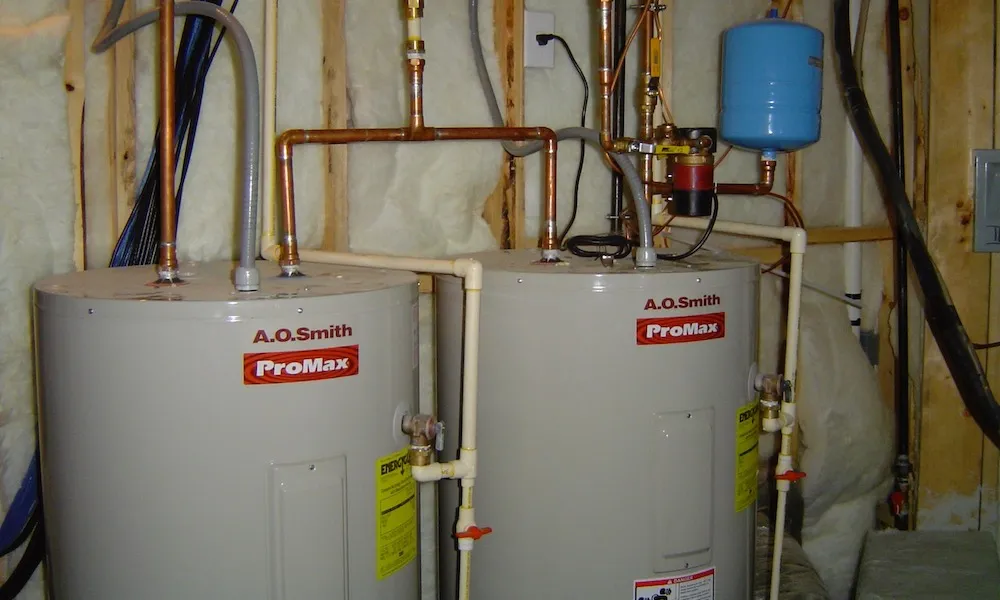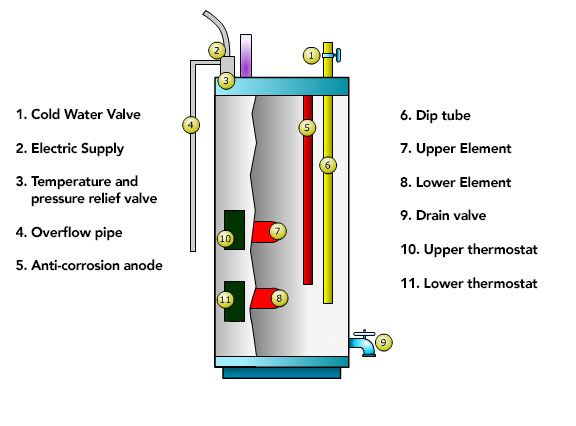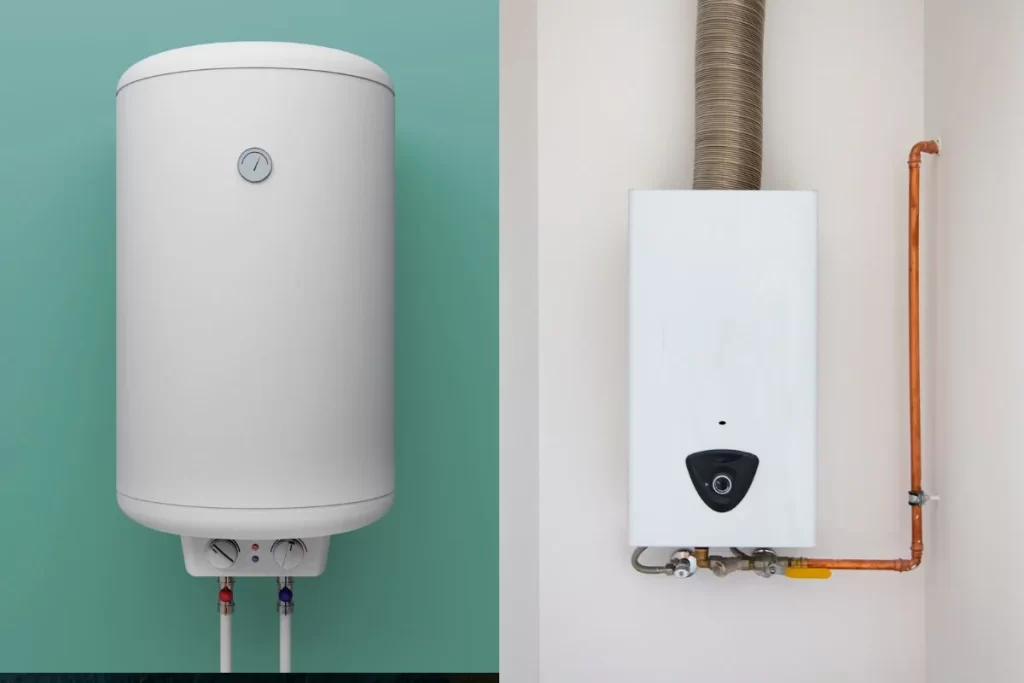Introduction

Welcome to your comprehensive guide on how to tell if your electric hot water heater is on. As a beginner in the world of plumbing and household maintenance, it’s crucial to understand the importance of knowing whether your water heater is operating efficiently. Even if you’re an experienced user, there are essential nuances and signs to watch out for that can save you from potential headaches down the road. In this guide, we’ll explore the significance of hot water in your daily life, delve into common issues and keywords related to water heaters, and equip you with the knowledge you need to ensure your water heater is functioning optimally.
Brief Overview of the Importance

Before we dive into the specifics, let’s discuss why it’s crucial to be aware of the status of your electric hot water heater. Your water heater plays a vital role in providing hot water for various household activities. Whether it’s a relaxing hot shower, clean dishes, or warm laundry, hot water is an essential component of your daily routine. However, when your water heater encounters problems or is turned off when it should be on, it can lead to various issues such as inconsistent water temperature, low water pressure, and more.
Relevance for Both First-Time Owners and Experienced Users
This guide is designed for everyone, from first-time water heater owners to experienced users. If you’re new to the world of water heaters, you’ll learn valuable insights to help you maintain and troubleshoot your system. For those who have been through a few water heaters in their time, this guide will serve as a helpful reminder of the signs to look for and the importance of regular maintenance.
Importance of Hot Water in Daily Household Activities
Hot water is not just a luxury; it’s a necessity in your daily life. Here’s a breakdown of why hot water is indispensable:
- Showers and Baths: A hot shower or bath is not only relaxing but also helps to keep you clean and refreshed.
- Dishwashing: Hot water is more effective at cutting through grease and grime, ensuring your dishes come out sparkling clean.
- Laundry: Hot water is essential for tackling tough stains and sanitizing your clothes effectively.
- Handwashing and Cleaning: Hot water helps to kill germs and bacteria, making it crucial for personal hygiene and household cleaning.
- Cooking: Boiling water for cooking or making beverages is much quicker with a readily available hot water supply.
I. Understanding Your Water Heater
A. Types of Water Heaters

When it comes to water heaters, there are two main types you need to be aware of: gas-powered and electric. Each type has its own set of characteristics and potential issues, so let’s take a closer look at them.
Gas-powered Water Heaters
Gas-powered water heaters are commonly used in many households. They rely on natural gas or propane to heat the water. Here’s what you should know about them:
- Efficiency: Gas heaters are known for their quick heating capabilities, making them suitable for homes with high hot water demand.
- Ventilation: Proper ventilation is essential to safely operate a gas water heater, so ensure that your space is adequately ventilated.
- Flame Inspection: Regularly check the pilot light or burner flame. A steady, blue flame indicates proper functioning.
Now, let’s delve into the type of water heater we’re focusing on: electric water heaters.
Electric Water Heaters

Electric water heaters use electricity to heat water. They are typically easier to install and maintain than gas-powered models. Here’s what you need to know:
- Installation: Electric water heaters require a dedicated electrical circuit and proper wiring. It’s essential to have a licensed electrician handle the installation.
- Heating Element: These heaters have one or two heating elements, and their condition is crucial for consistent hot water supply.
- Thermostat: The thermostat controls the water temperature. Setting it too high can lead to scalding, while setting it too low may result in inadequate hot water.
Now that you understand the basic types of water heaters, let’s move on to why your water heater’s user guide is your best friend.
B. Importance of User Guide
Your water heater’s user guide is not just a stack of papers to be tossed aside. It’s a valuable resource that can save you from potential issues and help you make the most of your appliance. Here’s why it matters:
Installation
- Proper Installation: The user guide provides step-by-step instructions for a correct installation. Skipping this step or making mistakes during installation can lead to problems like water leaks, electrical issues, or even gas leaks in the case of gas-powered heaters.
- Safety Precautions: It outlines important safety precautions during installation, ensuring you and your family’s well-being.
Operation
- Efficient Operation: Understanding how to operate your water heater optimally can prevent problems like inconsistent water temperature or hot water shortage.
- Temperature Settings: Learn how to adjust the thermostat to the right temperature to avoid scalding and save energy.
Maintenance
- Regular Maintenance: The user guide contains maintenance schedules and tasks. Regular maintenance can extend your water heater’s lifespan and prevent issues like sediment buildup, which can lead to poor performance.
- Troubleshooting: It provides troubleshooting tips and lists of common issues. Being able to identify and address problems early can save you from costly repairs.
II. Checking the Electric Hot Water Heater
Now that you’ve learned about the types of water heaters and the importance of your user guide, let’s move on to the practical steps of checking if your electric hot water heater is on and functioning correctly.
A. Inspecting the Circuit Breaker

Your electric hot water heater operates on electricity, and the first place to check is your home’s electrical panel, where you’ll find the circuit breaker that controls the heater’s power. Here’s what you need to do:
Location and Labeling of the Breaker
- Locate the Electrical Panel: Find your home’s electrical panel. It’s usually in a utility room, basement, or garage.
- Identify the Heater Breaker: Look for the circuit breaker labeled “Water Heater” or something similar. It should be clearly marked, but if not, consult your home’s electrical diagram.
- Check the Position: The breaker should be in the “On” position. If it’s in the “Off” position, it means your water heater is not receiving power.
What to Do If the Breaker is Tripped
If you find that the breaker is in the “Off” position or has tripped, follow these steps:
- Turn It Off and On: First, switch the breaker off and then back on. This action can reset a tripped breaker.
- Monitor for Tripping: If the breaker trips again immediately or frequently, it indicates an electrical issue. In this case, it’s crucial to call a licensed electrician to diagnose and fix the problem.
B. Examining the Power Switch
Your electric water heater usually has a power switch that directly controls its operation. Here’s how to inspect and operate it:
Location and Operation of the Switch
- Locate the Power Switch: Find the power switch on your water heater. It’s typically located on or near the unit.
- Check Its Position: Ensure the switch is in the “On” position. If it’s in the “Off” position, your water heater won’t function.
Resetting the Water Heater
If the switch was in the “Off” position or you had to turn it off during the breaker check, follow these steps to reset your water heater:
- Wait a Few Minutes: After switching the power on, wait a few minutes for the water heater to start heating the water.
- Check for Hot Water: Turn on a hot water faucet in your home. If you feel hot water after a few minutes, it means your water heater is on and functioning correctly.
C. Status Indicator Inspection
Some electric water heaters come equipped with LED status indicators that provide valuable information about the unit’s operation. Here’s how to interpret these indicators:
Understanding LED Indicators and Their Meanings
- Consult the User Manual: Refer to your user manual to understand the meanings of the LED indicator lights for your specific water heater model.
- Common Indicators: Typically, these indicators will display different colors or patterns to indicate whether the heater is actively heating water, in standby mode, or experiencing an error.
- Troubleshooting: If the indicator shows an error, consult your user manual for troubleshooting steps. Sometimes, a simple reset or adjustment can resolve the issue.
- No Indicator: If your water heater doesn’t have a status indicator, don’t worry. You can rely on the circuit breaker and power switch checks mentioned earlier.
Importance of Referring to the User Manual
Your water heater’s user manual is a valuable resource when it comes to understanding the status indicators and troubleshooting specific to your model. If you’re unsure about any indicator or encounter issues, always refer to the manual for guidance.
III. For Gas-powered Water Heaters

If you have a gas-powered water heater, the process of determining if it’s on and functioning correctly is slightly different from electric heaters. Gas-powered heaters rely on a pilot light for ignition. Here’s what you need to do:
A. Observing the Pilot Light
Understanding the Mechanism of Gas-powered Heaters
Gas-powered water heaters operate by using natural gas or propane to heat water. The key component in this system is the pilot light. Here’s how it works:
- Pilot Light: The pilot light is a small, continuous flame that burns beneath the water heater. It serves as an ignition source for the gas burner.
- Gas Burner: When hot water is needed, the gas burner ignites, heating the water inside the tank.
Checking the Pilot Light and Re-igniting If Necessary
To determine if your gas-powered water heater is on, you should check the status of the pilot light:
- Locate the Pilot Light: Find the access panel on your water heater that covers the pilot light assembly. It’s typically located near the bottom of the unit.
- Remove the Cover: Carefully remove the cover to expose the pilot light.
- Observe the Pilot Light: Look at the pilot light. It should be a small, steady blue flame. If it’s out, it means your water heater is not functioning.
- Re-igniting the Pilot Light: If the pilot light is out, follow the instructions on your water heater’s label or user manual to safely re-ignite it. This often involves turning the gas control knob to the “Pilot” position, lighting the pilot with a long lighter or match, and holding the knob in for a minute to ensure the pilot stays lit.
- Safety Precautions: When dealing with gas appliances, always prioritize safety. If you’re uncomfortable re-igniting the pilot light or if it keeps going out, it’s best to call a licensed plumber or HVAC technician to avoid gas-related hazards.
Safety Precautions and When to Call a Professional
Working with gas-powered appliances requires extra precautions. Here are some safety tips:
- Ventilation: Ensure that the area around your gas water heater is well-ventilated to prevent the buildup of gas fumes.
- Gas Odor: If you ever smell gas around your water heater or in your home, immediately shut off the gas supply, open windows, and leave the area. Call your gas company and a professional plumber or HVAC technician to address the issue.
- Carbon Monoxide Detector: Install a carbon monoxide detector near your water heater to monitor for any potential leaks or dangers.
- Regular Maintenance: Gas-powered water heaters should be professionally inspected and maintained annually to ensure safe and efficient operation.
IV. Professional Inspection and Repair
While performing your own checks and maintenance can help keep your water heater in good shape, there are times when it’s essential to call in a professional plumber or technician to ensure the safety and efficiency of your water heating system.
A. When to Call a Technician
Persistent Issues with the Water Heater
If you’ve been facing ongoing problems with your water heater, such as inconsistent water temperature, low water pressure, strange noises, or discolored water, it’s a clear sign that something may be amiss. Here’s when you should consider calling a technician:
- Frequent Repairs: If you find yourself frequently repairing the same issues, it’s a strong indication that there may be underlying problems that need professional attention.
- Signs of Potential Gas Leaks or Electrical Issues: If you notice any strange smells, sounds, or signs of gas leaks around your gas-powered water heater, or if you experience electrical shortages or outages with your electric heater, it’s imperative to call a technician immediately. These issues can pose serious safety hazards.
Importance of Regular Maintenance
Regular maintenance is key to preventing issues and ensuring your water heater operates efficiently. Here’s why it’s crucial:
- Extending the Lifespan of the Water Heater: Proper maintenance can significantly extend the lifespan of your water heater. Without regular care, the unit may deteriorate more quickly and require early replacement.
- Preventing Potential Issues: Regular maintenance can catch potential problems early on, such as sediment buildup, corroding parts, or faulty heating elements. Addressing these issues promptly can save you from costly repairs or replacements.
V. Conclusion
Congratulations! You’ve learned how to determine if your electric hot water heater is on and functioning properly. Let’s recap the essential steps and key takeaways to ensure you have a clear understanding.
Recapitulation of the Steps to Determine if the Water Heater is On:
- Check the Circuit Breaker: Inspect the circuit breaker dedicated to your water heater. If it’s tripped, switch it off and then on again.
- Examine the Power Switch: Find and verify the position of the power switch on your water heater. Ensure it’s in the “On” position.
- Inspect Status Indicators: If your water heater has status indicators, understand their meanings by referring to your user manual. Troubleshoot any issues based on the indicator’s feedback.
- For Gas-Powered Heaters: If you have a gas-powered water heater, observe the pilot light. It should be a steady blue flame. If it’s out, follow safety procedures to reignite it or call a professional.
Emphasis on Safety and the Importance of Referring to the User Guide:
- Safety should always be a priority when dealing with water heaters, especially gas-powered ones. If you ever smell gas or encounter electrical issues, prioritize safety and seek professional help.
- The user manual for your specific water heater model is a valuable resource for understanding its operation, status indicators, and troubleshooting steps. Always refer to it when in doubt.
Encouragement to Seek Professional Help When in Doubt:
- If you experience persistent issues, gas leaks, electrical problems, or if you’re unsure about any aspect of your water heater, it’s best to seek the expertise of a licensed plumber or technician. They can diagnose and resolve complex issues and ensure the safety of your system.
FAQ:
Q1: How can I tell if my electric hot water heater is working properly?
A1: You can determine if your electric hot water heater is working properly by checking the circuit breaker, power switch, and status indicators. Refer to your user manual for specific model information.
Q2: What should I do if the circuit breaker dedicated to the water heater is tripped?
A2: If the circuit breaker is tripped, switch it off and then on again. If it continues to trip, call a licensed electrician for further inspection.
Q3: Is there a difference in the operational indicators between gas and electric water heaters?
A3: Yes, there can be differences in operational indicators between gas and electric water heaters. Consult your user manual for specific details on your heater’s indicators.
Q4: How often should I schedule a professional inspection for my water heater?
A4: It’s recommended to schedule a professional inspection annually to ensure your water heater is in good condition and to address any potential issues early.
Q5: Can I install or repair a water heater by myself?
A5: Installing or repairing a water heater can be complex and potentially hazardous. It’s advisable to hire a licensed plumber or technician for such tasks to ensure safety and compliance with local regulations.

